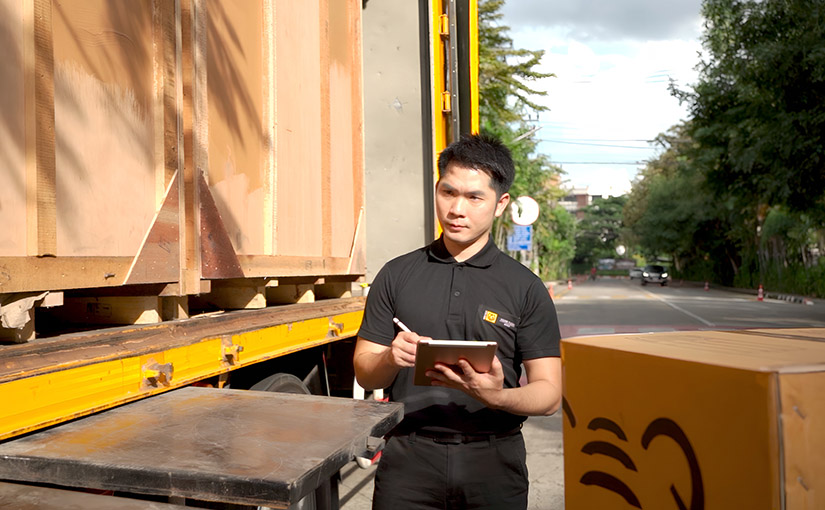How to Negotiate a Relocation Package
Rob Chipman: A Fond Farewell and the Start of New Adventures

Whenever you are looking at a job offer in another city or country, the critical factor that will make you take a deep plunge or not is the relocation package. One can easily see how moving to another place in the country or even the world can be financially and logistically cumbersome, but the relocation package really will take the sting out of it. Not all relocation packages are created equal. Knowing how to negotiate relocation packages is going to be long in ensuring your move to be as smooth and cost-effective as possible.
In this post, we look at some of the strategies behind relocation package negotiation and important tips that best position you to get a good deal as you move to your next job and location.
Understand What a Relocation Package Typically Includes
Before engaging in negotiations, it is important to understand what a typical relocation package might include. A moving company can offer different levels of support depending on the level of your job, location, and company policies. What might one find in a comprehensive relocation package?
- Moving Costs: This is packing, transporting, and unpacking your belongings. Some companies may even handle the relocation costs of vehicles in your name.
- Temporary Housing: If you have to relocate on short notice, the costs of temporary housing while you get permanent accommodation; temporary housing might be a hotel or short-term rental.
- Travel Expenses: Reimbursement for actual and reasonable travel expenses, including air transportation, gas, or car rental while moving, and even initial trips in order to look for a new home.
- Housing Assistance: This could be in the form of real estate agent assistance, purchasing a new home, or selling of your old home. Some companies even provide financial help with closing costs or mortgage fees.
- Storage: If, for any reason, there is a delay in moving into your new home, storage costs for your belongings may be paid for.
- Cost-of-Living Adjustments: Some companies provide cost-of-living adjustments for a move that is going to be more expensive.
- Family Assistance: Many moving packages provide support to family members with accommodation in regard to schools, searching for jobs for spouses, etc.
Knowing these components will help you decide what exactly you need, which in turn will also guide your negotiation process.
Assess Your Needs
When negotiating a relocation package, it’s necessary to put your personal and financial needs first. Consider what is unique about your move:
- Distance of the Move: Obviously, moving cross-country or internationally could be grossly more expensive than a local move. The further one goes, the more transportation is required, plus the possible change in cost of living.
- Family Considerations: In the case of a family relocation, other needs such as school admission, childcare, and job-finding assistance for a spouse or partner should be included.
- Variants in Housing Markets: If one is transferred to a more costly city, it will entail more financial assistance. If one sells a house in one city and buys in another, there are needs that may pop up for real estate commissions or temporary housing.
- Career Growth and Salary: Put the relocation package into perspective in terms of your overall career growth. Sure, a high-cost-of-living location may have a generous relocation package to account for the increased living expenses, but if the raise in salary isn’t impressive, you may want to negotiate for further assistance.
Knowing what you need is going to put you in a better position to negotiate a relocation package that suits your individual needs.
Do Your Research
Do your homework in preparation for negotiations. This involves:
- Industry Standards: Know what others in similar situations around you are getting. What is the average relocation package in your industry? This will give you a basis on which to make reasonable requests.
- Cost of Living in a New Location: There are plenty of online tools that will allow you to compare the cost of living between your current city and your new one. It might just help you justify those cost-of-living adjustments or additional housing assistance requests you’ll be asking for.
- Company Relocation Policy: Some firms consider relocation policy pretty much non-negotiable, while other companies offer flexible packages. Knowing your probable employer’s approach to relocation will help you place your request in the right perspective.
Having this information, you are in a better position to make well-reasoned reasonable requests and to show that you have given thought to your negotiation.
Be Clear About What You Want
When negotiating, clarity is key. Ensure you state exactly what you need from a relocation package that will pave the way for a smooth transition. Prioritize the most important aspects of the move to you.
Prioritize Your Needs:
- Housing: If finding a new home is your biggest concern, request temporary housing assistance or help with realtor fees and closing costs.
- Relocation Expenses: In the event of a relocation that includes costly furniture or vehicle movements, seek further facilitation of funds towards travel.
- Family Relocation: If one is relocating with family, identify needs one has, such as school hunting or job placement for a spouse.
By clearly stating your needs, you will be making it much easier for your employer to provide specific support.
Approach the Negotiation with Confidence and Flexibility
Confident yet flexible negotiation-that’s the way to go when it comes to relocation packages. Work out the details, remembering the following:
- Be Confident: Relocation packages often can be renegotiated, especially for senior role appointments or specialized employment. Present your reasoning in a cool manner and with relevant data in support.
- Mention Mutual Benefits: You need to highlight how the move is going to benefit both you and the company. If the transition of the employee is made easy and smooth, one can without wasting any time focus on their new role.
- Stay Flexible: While it’s great to know what you want, be willing to compromise. Perhaps the company cannot provide direct financial assistance but can compensate for this by offering other benefits, such as additional time off, additional paid days off to relocate, or professional services such as packing or real estate services.
A flexible attitude yet maintaining positivity in general will bring about a collaborative approach that will provide both parties with a satisfactory agreement.
Consider Non-Financial Benefits
While the financial support is a big part of the relocation package, nonfinancial benefits can also give considerable facilitation during your move. Some companies may provide:
- Paid Time Off for Relocation: Extra paid time off lets you get settled into your new home without using your vacation time.
- Work-from-Home Flexibility: If your job can be worked from home, you may want to negotiate temporary work-from-home possibilities for making the transition easier.
- Personalized Support: Most organizations provide relocation specialists that help you organize the logistics like moving services, house hunting, or even information on the local environment.
These non-monetary benefits can make your relocation process smooth and less painful.
Put Everything in Writing
Once you have negotiated your moving package, get everything in writing. This will help you and your employer understand what is involved in your moving package.
What Should Be Included:
- Itemized Cost Breakdown: Specify all expenses that will be covered, including moving costs, housing assistance, or travel reimbursement.
- Deadends and Timelines: The package should state categorically when the reimbursement needs to be presented and by when any relocating services, such as moving or housing, are made available.
- Tax Implications: Certain forms of relocation benefits may be subject to tax deductions.Ascertain from your employer how they will treat them or if they offer any tax counseling.
Putting it all in writing reduces the chances of misunderstandings and ensures that the company keeps its word.
Conclusion on How to Negotiate a Relocation Package
Knowing how to negotiate a relocation package can make all the difference when moving for a new job. By knowing your needs, doing thorough research, and approaching the conversation with confidence and flexibility, you’ll be able to come away with a relocation package that truly supports your move and sets you up for success in your new role. With the right preparation, you will be well on your way to being ready to negotiate effectively and make sure your transition is as smooth as possible.
If you’d like to discover the latest information about the moving and relocation world, please also check other industry news from Asian Tigers Group.
Your trusted moving support is only a few clicks away from your hand. Contact the Asian Tigers office near your origin or destination for your next move. You can also check our Frequently Asked Questions resource, AI-powered by Tiger Move Bot.









